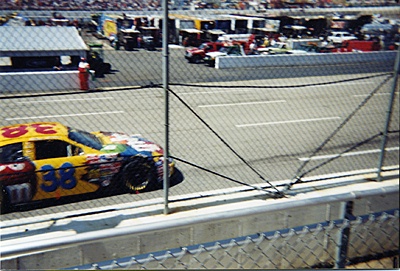All Nonfiction
- Bullying
- Books
- Academic
- Author Interviews
- Celebrity interviews
- College Articles
- College Essays
- Educator of the Year
- Heroes
- Interviews
- Memoir
- Personal Experience
- Sports
- Travel & Culture
All Opinions
- Bullying
- Current Events / Politics
- Discrimination
- Drugs / Alcohol / Smoking
- Entertainment / Celebrities
- Environment
- Love / Relationships
- Movies / Music / TV
- Pop Culture / Trends
- School / College
- Social Issues / Civics
- Spirituality / Religion
- Sports / Hobbies
All Hot Topics
- Bullying
- Community Service
- Environment
- Health
- Letters to the Editor
- Pride & Prejudice
- What Matters
- Back
Summer Guide
- Program Links
- Program Reviews
- Back
College Guide
- College Links
- College Reviews
- College Essays
- College Articles
- Back
Speeding Into Disparity
Everytime you go driving, you are putting a metaphorical gun to your head. Yep, it’s true. Speeding drivers, alcohol influenced drivers, and unreliable driving conditions are just a few of the dangerous aspects of driving. But, speeding is the most prevalent of reasons for car accidents. It breaks up families. It puts people in the hospital. It costs you money. It’s just unnecessary! Our hunger for adrenaline through reckless driving demands a solution immediately. More and more deaths are happening. More people are getting debilitating injuries. It needs to stop and it all starts with conscious thinking. Although we cannot control a person’s impulse to drive dangerously, however we can control their vehicles from doing so with a unique speed limiting technology.
We as a technologically advanced society should be harder on this subject. According to Carole Walker of Rocky Mountain Insurance Association, 9,613 people died in 2013 to a speed related crash. Of those 9,613 fatal car accidents, 31 percent were people of the ages 16 to 24. Immaturity and lack of experience behind the wheel contribute to speed related accidents. Whats even more mind boggling is that 29 percent of all fatal car crashes are due to speeding. It not only costs you your life, but it also costs Americans money. Speeding costs Americans 40.4 billion dollars per year. With all of these misfortunate consequences of speeding you must be asking yourself, what are people doing to stop this? Well, recently new technology to stop speeding have been introduced in the automotive world.
There are already devices such as speed limiters which limit the speed of a car, however those are inefficient because the car can still reach high, dangerous speeds. When approached with the topic of speeding we must ask ourselves this, have we entrusted too much responsibility to drivers? Reality is that we have. Even products like the Ford S-Max are imperfect with its design and concept. The Ford S-Max is a car that can read traffic signs and adjust the throttle to reduce the driver's speed. Here's its flaw, the driver can easily override the adjustment of the throttle just by pushing on the gas pedal harder. Therefore, you are still granted the ability to speed. Not only that, but what if the Ford S reads a sign incorrectly? The driver could possibly get rear ended if the car were to read a 65mph sign as a 35mph sign leaving the driver at a great risk of getting injured.
This technology just isn’t safe. There must be something devised to restrict the power we hold as drivers.
My solution to this epidemic is a pole, similar to a telephone pole, that releases signals to your car informing it of the areas speed limit. Your car's computer will receive this signal and notify your engine to slow down and restrict you from exceeding the posted speed limit. The flow of gas to the engine provoked by the pressure on the throttle will be restricted thus virtually restricting your car from speeding. The logistics of the whole device is simple, say you are in a residential area and you are going 30mph. Your car will receive a signal by a nearby tower telling it to restrict the speed excession. Once that signal is received, then the car will respond by lowering the intake of gas to the engine being pushed by the throttle. These poles will be cheap as their technology will resemble a wifi router. Unlike a wifi router, they will have a greater signal radius and they will be placed around every mile or so. The pole’s technology will eliminate speeding and the consequences that follow speeding.
Speeding has plagued the minds and hearts of many and we as a community must put it to a stop. Our efforts such as the Ford S-Max and speed limiters are infected with flaws that also contain cons that we cannot afford. Our recklessness has led to the questioning of our responsibility as drivers. To truly reduce the deaths and the heaving amounts of money spent away to cover the expenses of the consequences, we must invest in a better alternative.

Similar Articles
JOIN THE DISCUSSION
This article has 0 comments.
